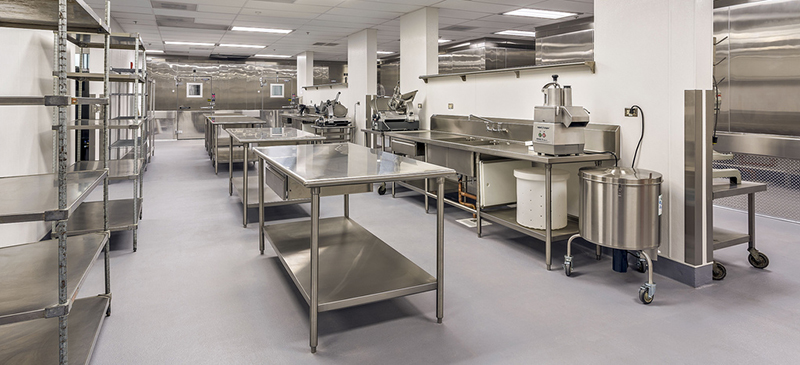Hip, artisanal food producers have found that the Brooklyn brand is a huge draw. But with rising costs and limited commercial kitchen space, it’s becoming increasingly difficult for these manufacturers to stay in Brooklyn.
Brooklyn hosts a growing number of food manufacturers and popular events like Brooklyn Flea and Smorgasburg, weekly markets highlighting local businesses and entrepreneurs and draw shoppers from across the city. And the food production sector is growing rapidly increasing by 11 percent from 2008 to 2012, compared with 7.4 percent for the commercial sector overall, said Jen Becker, a senior fellow at the Brooklyn-based Pratt Center for Community Development.
“For Brooklyn companies, having a Brooklyn-based facilities enables them to keep the integrity of that powerful brand,” Becker said.
But food start-ups that grow find it expensive to increase their scale. And unlike tech start-ups that tend to draw a big upfront capital investment, entrepreneurs behind food companies often to start with little more than a good recipe and a few thousand dollars — usually enough to lease some incubator space and buy ingredients and packaging for a first run of products.
“Usually incubator spaces are just that,” said Przemek Adolf, co-founder of Saucy by Nature, a condiment and catering company founded about two and a half years ago. “You very quickly max out of what is possible in that space.”
Adolf said his company moved from the incubator kitchen to rented space, leasing at a location with a large steam kettle which, at about $30,000, would be too expensive for the new company to purchase on its own. But as new commercial kitchen locations become popular, rents spike to meet demand. It’d be cheaper to move out of the city, but that would dilute the Brooklyn brand and make it harder for businesses to keep track of production processes.
City Council Member Steve Levin — whose district includes much of northwest Brooklyn, including Greenpoint and parts of Williamsburg — released a report this month on food manufacturing in the borough. The report identified a need for a cooperative facility where many food producers could work together in a shared kitchen with common storage and office space. There are a few spaces like that in New York City, though none are located in Brooklyn. Levin hasn’t proposed a City Council-backed facility, but has indicated he’d be supportive of private or non-profit efforts to establish one.
“Being in Brooklyn matters,” said Matt Ojala, Levin’s spokesman. “It’s our hope that the people will take our recommendations and go forward with the creation of a co-packing facility within the borough.” Just a few weeks old, the report is starting conversations among Brooklyn food producers about how to move forward, he said.
Beyond production, local food manufacturers have faced distribution headaches as they grow. Many turn to distributors who reduce the logistical burdens that come as a company grows, but have found such service is often costly. To help address concerns like distribution and co-packing, Adolf and Saucy by Nature co-founder Monika Luczak established an organization called Fare Trade NYC, working in conjunction with the Brooklyn Chamber of Commerce. The group works to help up-and-coming food entrepreneurs and bands together to find lawyers, designers, and other professions who can work on a part-time basis with a number of firms. Now they’re working to tackle the issue of distribution, banding together to get better rates as a group.
“We have a lot more leverage as a group: the ability to tell people this is who we are and this is what we need,” Adolf said. “We have a lot more of a voice.”


Leave a Reply